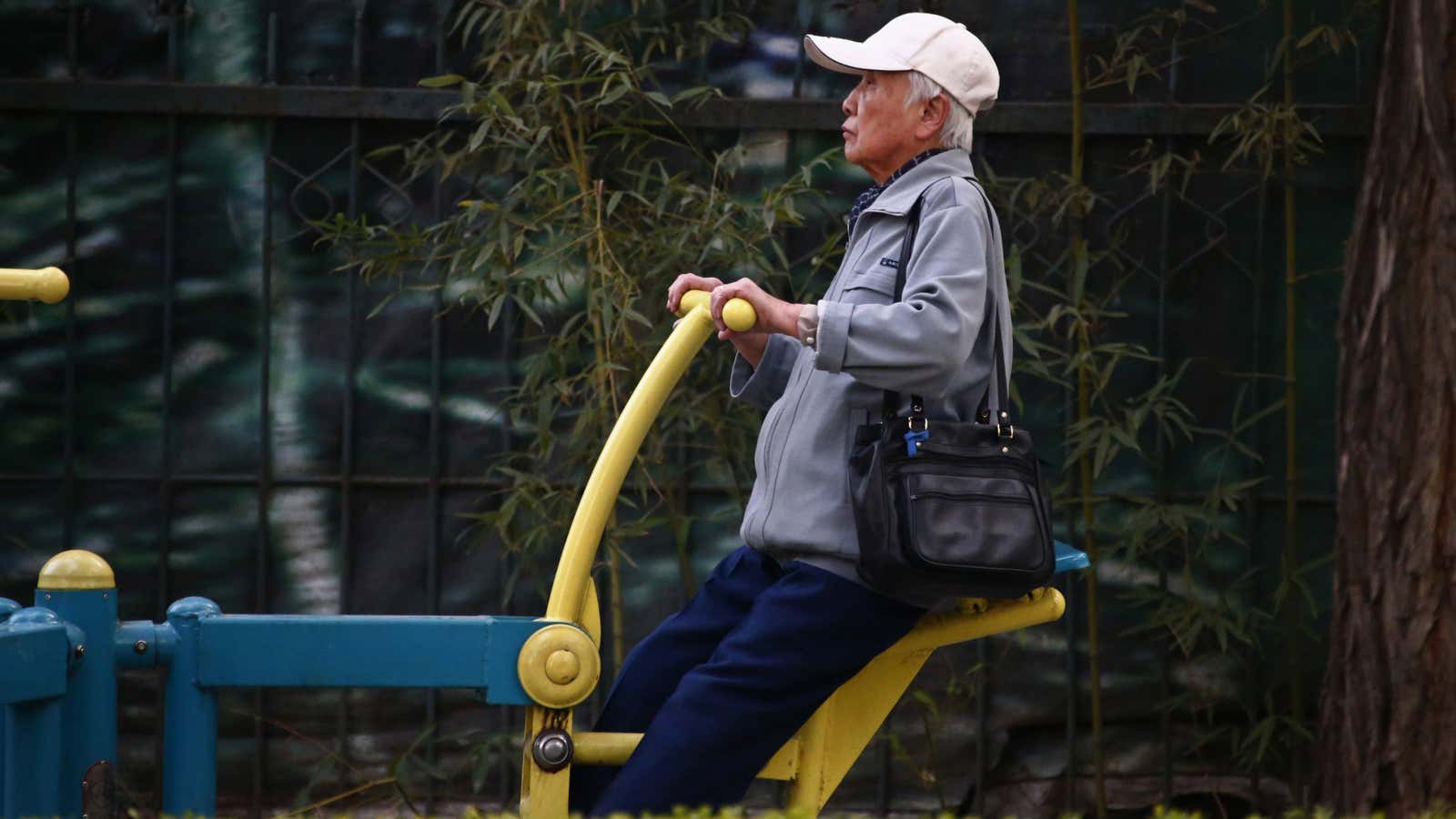Pension payments in China were so low last year that they amounted to just a fraction of the amount paid to those claiming welfare. Jingji Cankao Bao, an economic newspaper, reported that figures released by both the Ministry of Human Resources and Social Security (MHRSS) and the Ministry of Civil Affairs show the average per capita pension payment in 2013 was just 81 yuan ($13) per month (in Chinese).
In contrast, China’s urban residents receiving welfare benefits get an average 625 yuan ($101) in monthly payments. Even in the countryside, where state assistance is typically far lower than in the city, welfare applicants got an average 313 yuan ($50) per month.
The Chinese pension system guarantees a minimum payment of 55 yuan ($9) per month. Workers can receive higher payments if they work for the state or established companies that pay into the system over the course of their careers; civil servants and state sector workers can get 70 to 90% of their final salaries. Still, the the majority of pensioners only get the minimum (in Chinese).
The low pension rates underscore China’s looming demographic dilemma. Because of increased standards of living and especially the decades-old “one child” policy, the country is aging rapidly. By 2050, a third of the population—437 million people—will be over 60 years old and eligible for a pension. The system has already fallen some $3 trillion behind projected future payouts.
The relatively skimpy social safety net for retirees is also blamed for China’s low rates of consumer spending. Households are extremely conservative with their savings because there is no guarantee of a pension sufficient to live on, which runs counter to the government’s efforts to transition to a consumer-driven economy.
The government also wants to raise the official retirement age in China. At present, men employed in China’s public sector can retire at 60 years old, while their female counterparts can end white collar work at 55, or finish blue collar careers at the age of 50. Yin Weimin, the head of the MHRSS, promised last month that raising the retirement age will happen in time, telling reporters that the ministry “will definitely introduce the plan before 2020.”
